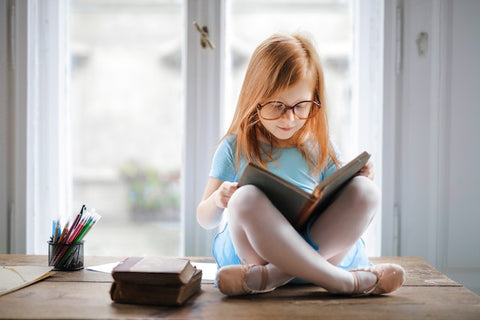It doesn't take a genius to figure out that if schools are shut for long periods of time, as they were during the Covid pandemic, student attainment will suffer. The switch to remote learning was always doomed to failure as Zoom is no substitute for a classroom teacher. And that’s to say nothing of the damage done to children’s health by having them sit in front of a computer all day.
Throughout the pandemic, parents’ fears about the damage school closures were doing to their children were ignored. But now a new report by the National Center for Education Statistics (NCES) — has proven parents were right to be concerned.
According to the NCES, in 2019, 19% of fourth graders were below the Basic Level in mathematics — already a scary statistic in itself. By 2022, that figure had risen to 25% of students. Attainment was even worse at eighth grade level: in 2019, 31% of eighth graders were below the Basic Level, rising to 38% by 2022.
The picture for reading was similar, although less pronounced. In 2019, 34% of fourth graders were below Basic Level, rising to 37% by 2022. And for eighth graders, 27% were below Basic Level in 2019, rising to 30% in 2022.
“The results show the profound toll on student learning during the pandemic, as the size and scope of the declines are the largest ever in mathematics,” NCES Commissioner Peggy G. Carr said.
Matthew Chingos, who directs the Center on Education Data and Policy at the Urban Institute, told the New York Times that it was likely that math scores fared worse as they depend largely on what is taught in the classroom, while reading is influenced more by “what happens in the home.” That’s good news for parents.

The Benefits of Reading to Children
Most parents are aware of the benefits of reading aloud to babies and small children, who love the bright colors and shapes found in board books and may even ask to be read to. But when children start to read for themselves, many parents assume that they’re best left to get on with it on their own. Not so.
There are many benefits to reading with children, and they are not limited to early years. They include:
- Expanded vocabulary and cultural awareness
- Cognitive development
- Higher academic achievement
- Bonding with your child
- Greater imagination and creativity
- Improved concentration
- Improved future health
Studies have shown that children who aren’t proficient in reading at Elementary school are more likely to drop out of high school or graduate late. Others have found that small children whose parents read five books a day to them enter kindergarten having heard about 1.4 million more words than children who weren’t read to, a gap that can shape their learning throughout their school career and beyond. The academic benefits really speak for themselves.
Yet there’s more to reading than simply academic achievement. Disengaging from screens and instead concentrating on reading a book or hearing a story read out loud helps children learn how to control their impulses and concentrate for longer periods of time.
Books also open doors to new worlds, new perspectives and new experiences, enhancing children’s imaginations, but also teaching compassion and empathy for other points of view.
What’s more, some studies have even found a link between literacy levels and long term health outcomes. The reasons are likely to be complex, but at the very least, literacy builds confidence and widens knowledge, which in turn gives people the ability to make informed decisions about their health and treatments.
If that isn’t enough to convince you, quality time spent reading with your child helps to build and cement the bond between you. This is true for reading in groups as well as one-one-one. Why not involve the whole family by setting aside a quiet hour each week for each member of the family to read aloud and share the stories they have been enjoying?

How should I read with my child?
The key to teaching literacy is to keep it fun. Choose books that your children enjoy. If that means reading a book more than once, so be it. The classics are always a great place to start, but the important thing is to find something engaging, that won’t make them view reading as a chore.
Choosing new books to read regularly can become tiring — there’s just too much choice, causing decision paralysis. Box sets and series, such as the Narnia series, the Harry Potter Books, or Heroes of Liberty, are a great work around for choice fatigue.
For reading to become a habit, it’s best to pick a regular time in which you and your child reads together. The best way to do this is to add it to your existing daily routines. For this reason, bedtime is always a popular choice – hopefully your children go to bed every day!
Never assume that your child is too old to be read to. The NCES studies show that every year, fewer eight graders reach basic levels than fourth graders, meaning that children can easily slip behind as they get older. Reading at home is a great way to ensure your child is not in that category.
Whatever you choose to read, and however you choose to read it, rest assured that you can make a real difference to your child’s literacy levels by reading with them at home throughout their childhood.
For more on reading aloud with children, read our five part blog series on the topic.






